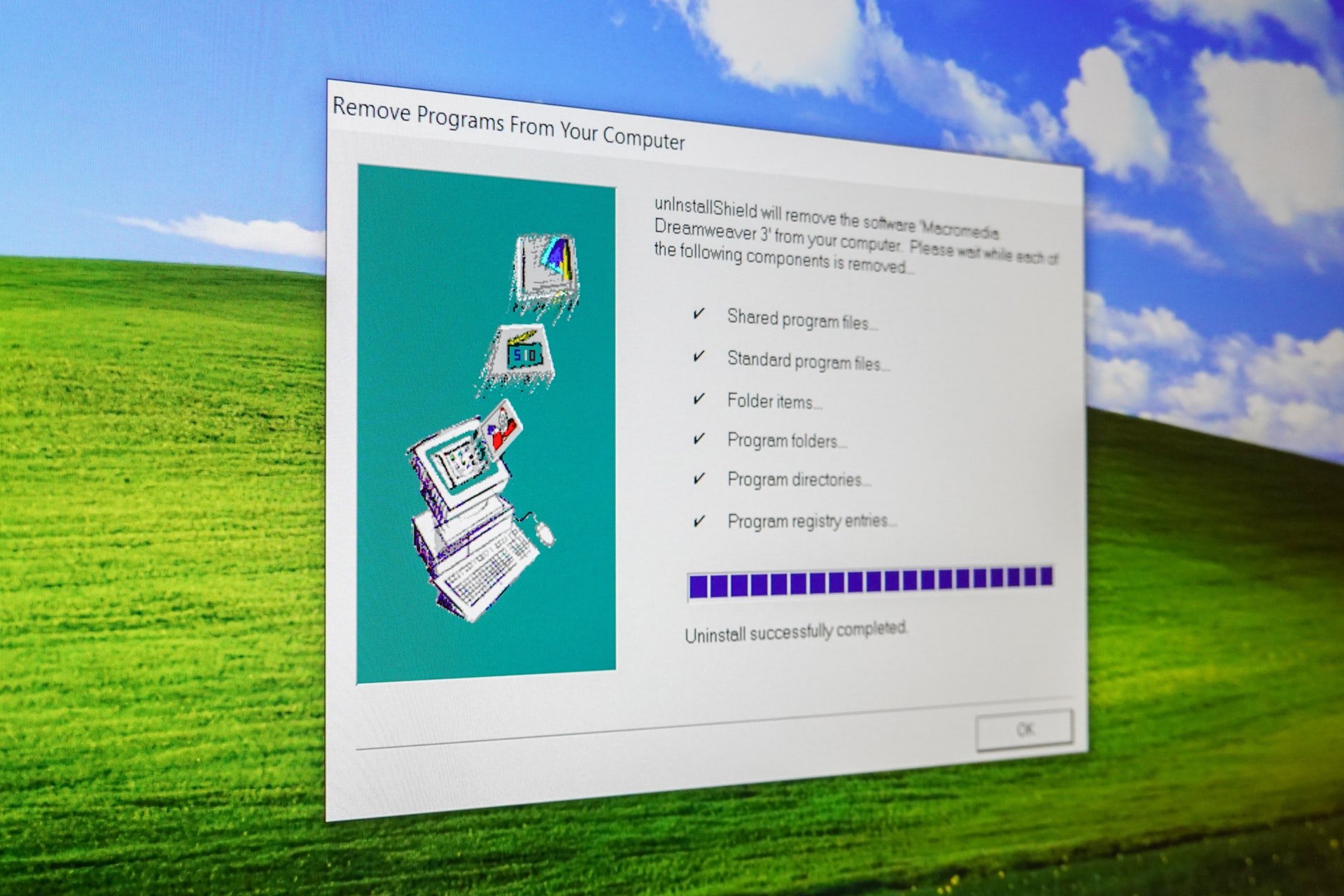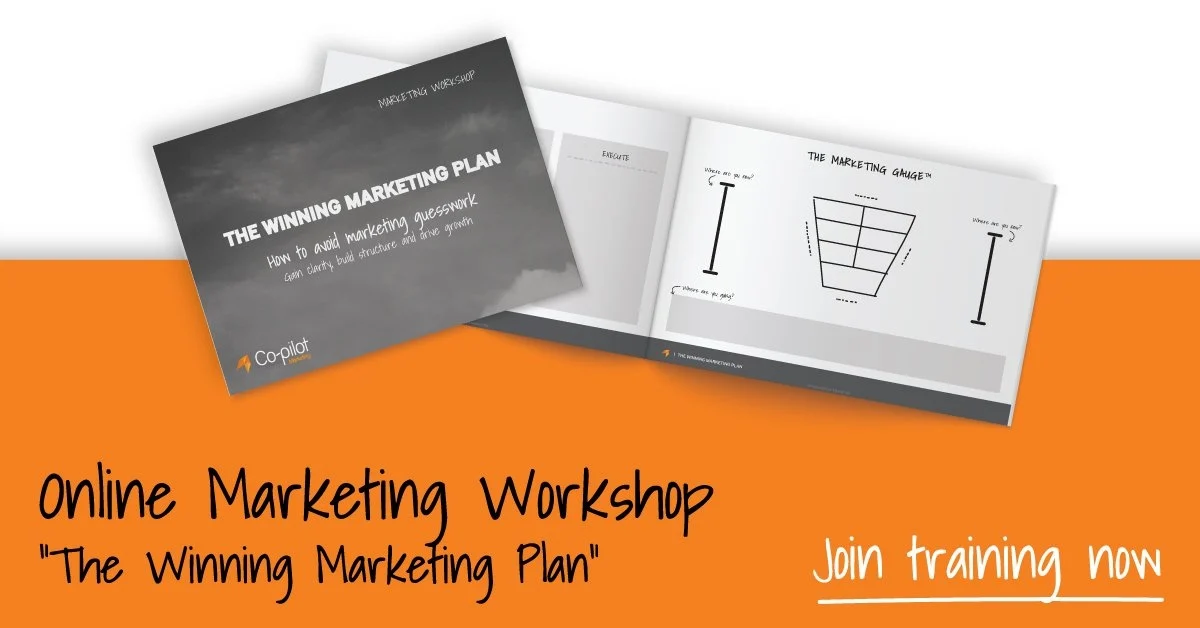
Choosing the right CRM system is so foundationally important.
In most areas of sales and marketing, I advocate for making quick progress, so you can iteratively optimise campaigns and assets over time.
However, the notion of 'go slow to go fast' is the exact approach you should take with choosing the right CRM software.
You want the Goldilocks of systems, not something that's going to be too low end, not some exorbitantly expensive tool way beyond what you need, but instead, the CRM features that's just right for where you are now and can grow with you over time.
I can set my watch to the exact moment when I get asked about CRM systems.
At the start of week 2 of our Marketing Compass Program, about half our new program members recognise that their systems (often the lack thereof) are holding them back. I want to use their experiences to help you avoid charting the wrong course.
The 3 Categories of, "What CRM Features Do We Need?"
The people who ask me, "what CRM features do we actually need" fall into one of 3 categories…
Category 1: They don't have a CRM system. They're using their email inbox, a spreadsheet, their calendar and a patchwork quilt setup of files and notes to try and keep track of their leads and sales opportunities. That's known as a 'Frankensystem'.
Category 2: These people have a CRM, but it's underutilised, mainly because it is a bad fit for them. It lacks integration across their email system, has no website management tools, and is basically just a database of contact records that offers no real automated lead nurturing capabilities.
Category 3: These people were previously in one of the other 2 categories but have since moved to evaluate a few different CRM platforms. They are in the process of speaking to software sales reps and doing free trials. But, by the time we explore what they actually need, they disregard some or all of their CRM shortlist pretty quickly and are much more purposeful in getting the right CRM features.
The fact you've been drawn to this article tells me you're in one of these 3 categories as well. So, let's jump into it.
Avoiding The Bad-Fit CRM System Trap
I want to start by sharing with you a common CRM trap.
It's what set me on the trajectory of where I am today, doing what I do now, and I can sum it up in one sentence…
There is no such thing as marketing in a box.
No matter what software salespeople tell you, you can't take a pre-baked, templated campaign, add your logo, change some colours and fill in the blanks with your own messaging and press "go".
In over 15 years of working with marketing software, I've never seen it work effectively. Not once.
I empathise with the businesses that get sold expensive software under the impression that they would receive turn-key automated lead generation and paint-by-numbers campaigns...
Instead, they bought a jigsaw puzzle and needed to put it together themselves, often without the picture on the back of the box to guide them.
And for quite a few years, that's where I would come in. People would come to me to help them build the jigsaw puzzle (the right strategy and plan), which often would result in a further change in their marketing software stack.
This brings me to the next takeaway I want you to have.
Any piece of software is only as good as the strategy that drives it. You need to set the rules.
Choose CRM Systems That Allow You To Add Features As You Need Them
CRM software is merely a tool, which is why you need to recognise the functions you need the software to perform, otherwise, you are going to be paying for things you don’t need yet, or maybe won’t need at all.
If you're a small to medium-sized business, do you really need things like predictive lead scoring, advanced analytics dashboarding and help-desk style ticketing systems? Probably not.
Your objective is to start using a CRM tool that can grow with you so you can bolt on the extras that you need, at a time when you will get full value from using them.
This is why you should use a platform that has varying subscription levels that you can upgrade to, or at least has a suite of native integrations with other best-in-class software tools, so you can put together a seamless stack of the tools you actually need.
For this reason, I can't emphasise strongly enough that you don’t want to choose a platform that has no growth potential. If you will outgrow the platform in 2 years you will waste so much time and effort in onboarding and then offboarding that any money saved with a lower-end solution will have been evaporated by the opportunity cost of your time.
Don't Choose Too Soon?
Despite all the bad experiences I hear businesses have with software vendors, not all software salespeople operate purely from a point of self-interest.
However, even with good intentions, issues can easily arise.
When salespeople are unaware of the nuances of a client's industry sector, or they don't explore the potential problems caused by the lack of technical proficiency within the client's business, it opens the door to misunderstandings.
The client doesn't know what they don't know, so they make assumptions too.
It's a recipe for a bad-fit CRM system to be sold.
For the same reason you shouldn't outsource your marketing before you have a solid plan and framework; you shouldn't choose a marketing software stack until you are crystal clear on exactly what you need.
Your CRM Is The Heart of Your Sales & Marketing Systems
A CRM should be the central hub that all other sales and marketing tools connect to.
Email marketing, social media scheduling, landing page builders, blogging platforms, analytics, video hosting, surveys, webinars, deal pipelines, sales call booking calendars...
All these tools should be integrated with the core CRM so that your sales and marketing actions and insights live in one place.
If you have any or all of those tools now, but they exist in a siloed manner, you are limiting your sales and marketing effectiveness. You really want a CRM that integrates with each of them or replaces the need for them because that new CRM has these natively embedded features.
If you don't have any or all of those tools - wait until you're confident that you need them. Otherwise, you're moving too quickly and will amass subscriptions you don't need.
Adopt the motto: Just in time, not just in case.
The Sequence of Your Marketing Actions Matter
I mentioned earlier that these CRM questions and discussions come up in week 2 of our Marketing Compass Program. This is when we help businesses define the systems and processes that maximise conversions based on the targets and budgets that we helped them set in week 1.
Despite what other agencies and consultants may do, we don't start work on content marketing or lead generation campaigns until these basics have been set. Otherwise, the tactics you use are too close to guesswork and heavily reliant on trial and error.
The last thing we want our clients to do is throw their money against the wall to see what sticks.
All told, our marketing structure for predictable growth has 9-stages, and your CRM is an essential component in getting full value from the actions taken at each stage.
If you'd like some help getting your marketing foundations right, you can follow our Marketing Compass Model, in one of two ways...
You can undertake our online workshop to get the details on what to do and how it works.
Or you can organise a marketing game plan call to discuss the process with me 1:1 and see how it works specific to your business situation.
You can book that game plan call and access the assessment tool from the link below.
I hope you find it helpful.







Speak Your Mind